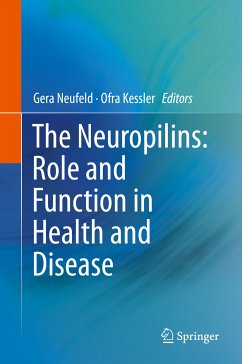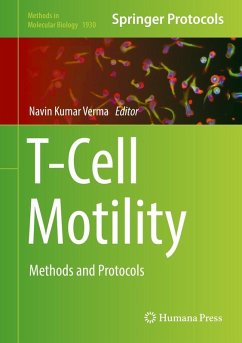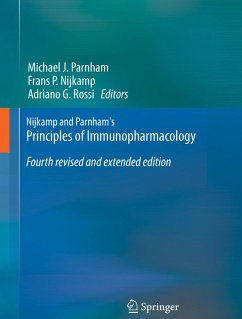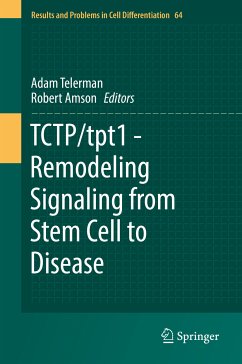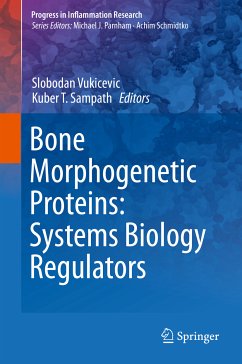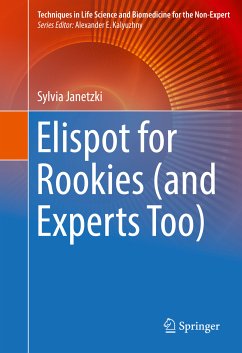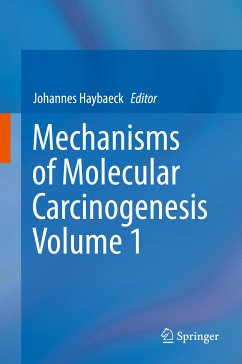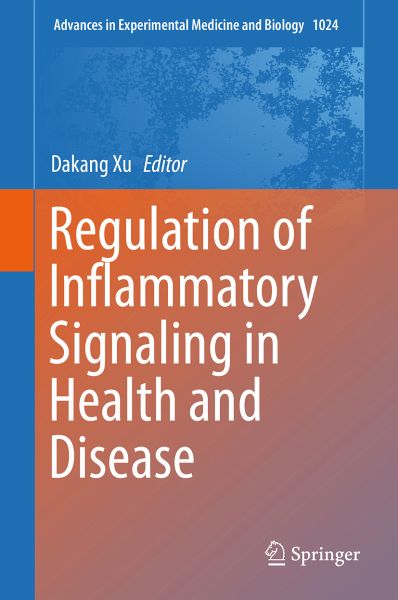
Regulation of Inflammatory Signaling in Health and Disease (eBook, PDF)
Versandkostenfrei!
Sofort per Download lieferbar
112,95 €
inkl. MwSt.
Weitere Ausgaben:

PAYBACK Punkte
56 °P sammeln!
This book discusses recent research in innate immunity, which has revealed a large number of receptors that sense the presence of microorganisms or cellular damage in tissues. In complex tissues, many of these sensing events occur simultaneously. Thus, the downstream signaling pathways need to be integrated so that an appropriate cellular inflammatory response can be initiated. In addition, the inflammasome defines the molecular and cellular processes of inflammation in response to microbial infection. Previous data suggested that regulation of inflammasomes is mediated by microbes, but inflam...
This book discusses recent research in innate immunity, which has revealed a large number of receptors that sense the presence of microorganisms or cellular damage in tissues. In complex tissues, many of these sensing events occur simultaneously. Thus, the downstream signaling pathways need to be integrated so that an appropriate cellular inflammatory response can be initiated. In addition, the inflammasome defines the molecular and cellular processes of inflammation in response to microbial infection. Previous data suggested that regulation of inflammasomes is mediated by microbes, but inflammasomes also have antimicrobial functions. Increasing evidence in mouse models, together with human data, strongly implicates an involvement of the inflammasome and uncontrolled inflammation in the initiation and progression of diseases with a high impact on public health.
The book reviews novel aspects of functional genomics, epigenomics, transcriptomics, post-translat
ional modifications, microbiome and immunometabolism in order to understand inflammatory signaling and responses, covering recent findings on the mechanisms underlying the regulation of inflammatory responses to pathogens, dysregulation of these responses in inflammatory disease, and the use of such mechanisms to boost or subdue the inflammatory response. Bridging the gaps in understanding between the fields of human and mouse immunology, it provides valuable insights into inflammatory-mediated disease and immune defense. Such innovative perspectives in both basic and clinical research promote the translation of knowledge to the clinic.
The book reviews novel aspects of functional genomics, epigenomics, transcriptomics, post-translat
ional modifications, microbiome and immunometabolism in order to understand inflammatory signaling and responses, covering recent findings on the mechanisms underlying the regulation of inflammatory responses to pathogens, dysregulation of these responses in inflammatory disease, and the use of such mechanisms to boost or subdue the inflammatory response. Bridging the gaps in understanding between the fields of human and mouse immunology, it provides valuable insights into inflammatory-mediated disease and immune defense. Such innovative perspectives in both basic and clinical research promote the translation of knowledge to the clinic.
Dieser Download kann aus rechtlichen Gründen nur mit Rechnungsadresse in A, B, BG, CY, CZ, D, DK, EW, E, FIN, F, GR, HR, H, IRL, I, LT, L, LR, M, NL, PL, P, R, S, SLO, SK ausgeliefert werden.




